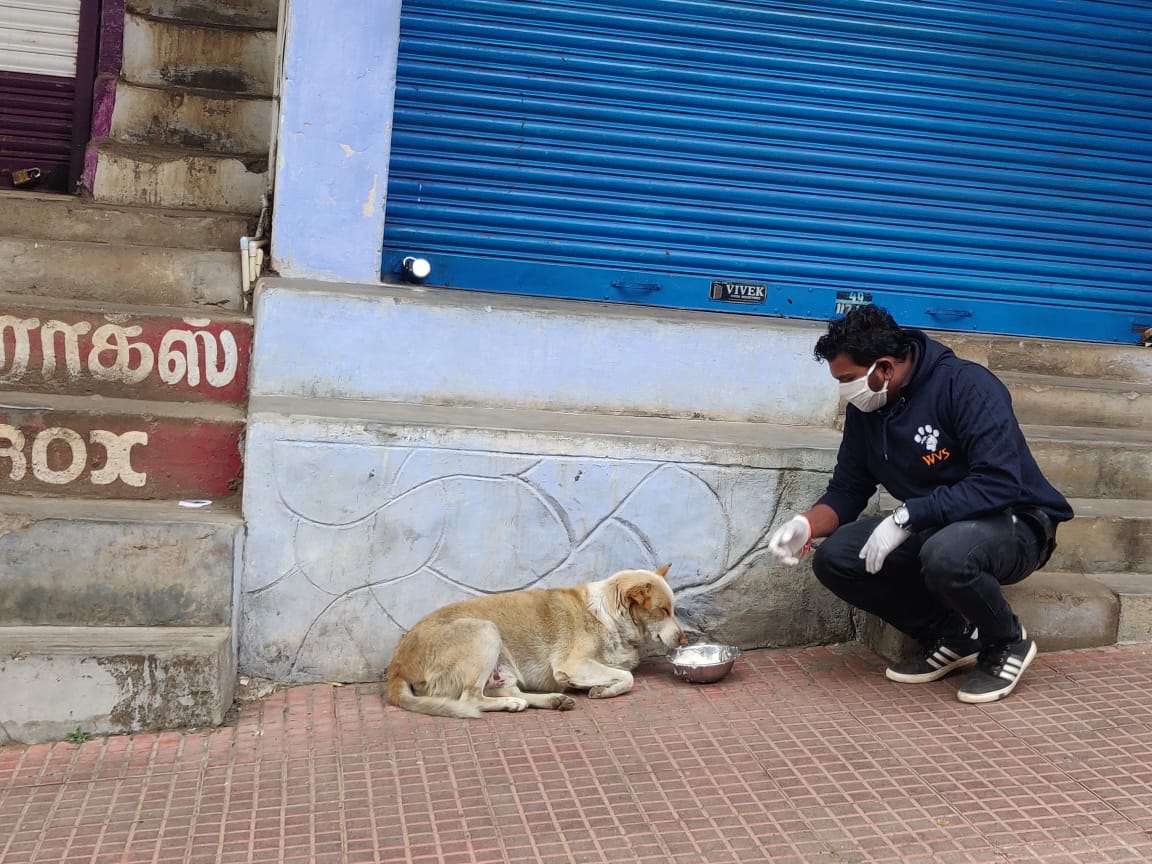As the world responds to the pandemic, many animals are stripped of their basic needs; food, shelter, and care. It put animals who are already vulnerable – living on the streets or with a family who struggled to provide for them – in a desperate and often life-threatening position.
Necessities disappear
As national and local lockdowns force restaurants, cafés, and food markets to close, animals starve. Homeless animals, who rely on discarded food scraps and hand-outs from the community, struggle on the empty streets.

Injuries increase
In search of food on the empty streets, stray animals are forced out of their normal territories, where they had to compete for the little that was left and are exposed to unfamiliar dangers. As a result, the number of injuries from fight wounds, uncovered wells, and plastic containers – where stray dogs frequently get their heads stuck – has increased.

Help just-out-of-reach
Curfews and movement restrictions have created problems for many charities and NGOs. In many places around the world, these have hampered the capacity to reach animals in need and made even ordinary rescues challenging.

Basic vet care put on hold
To minimise the spread of COVID-19, many veterinary clinics have periodically closed their doors to routine check-ups and basic vet care – opening services only to emergencies. This delays many animals from receiving vaccinations, sterilisation, de-worming, and more, and jeopardizing the overall health of the animal population.
Responding to a Pandemic: What did we do?
We improvise, adapt, and overcome challenges – for animals everywhere.
Facing increased demand for veterinary treatment and care worldwide, we quickly adapt our way of working to protect animals against new threats emerging from the pandemic.
We are an essential service
Whilst other veterinary clinics and animal welfare groups must cease operations in lockdown, our centres across India, Thailand, and Malawi were deemed essential by local governments due to the wide variety of services we offer, and as such, continue operating where possible. With new travel permits in hand, our mobile rescue teams continue to reach thousands of animals in their moment of need, whilst our veterinary teams manage the huge upsurge in emergencies caused by the conditions on the empty streets and the lack of open facilities to treat and care for them.
We are a feeding taskforce
Lockdowns emptied many streets overnight, leaving little food for the homeless animals. Alongside other NGOs and volunteers, our teams in India were enlisted to form a feeding taskforce to help starving and dehydrated animals survive the ongoing pandemic.

We found a new way of working
Travel restrictions, curfews, and social distancing rules meant we have to put stringent preventive measures in place, work in new shift patterns, and follow local government guidelines to continue to help animals in need. With limited support from volunteers, our permanent teams step up to meet the challenge head-on.

Related Content
Visit WVS News to learn more about our work throughout the pandemic – everything from shipping vital veterinary supplies to upskilling vets online and at our training centres.
Subscribe to our mailing list to get our latest news direct to your inbox.